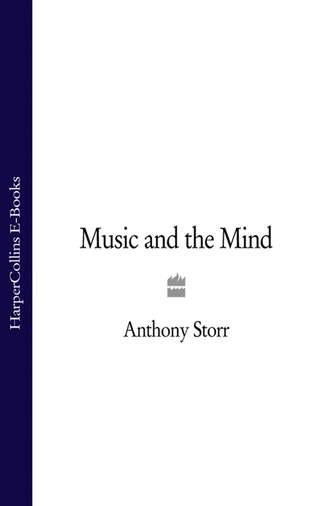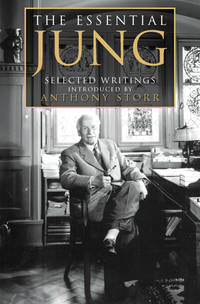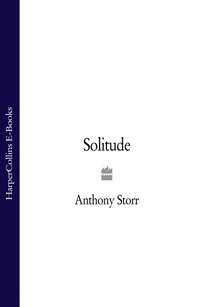
Полная версия
Music and the Mind
These two harmonies I ask you to leave; the strain of necessity and the strain of freedom, the strain of the unfortunate and the strain of the fortunate, the strain of courage, and the strain of temperance; these, I say, leave.29
As Glaucon points out, this leaves only the Phrygian and Dorian modes from amongst those in common use. The term ‘mode’ as employed by the Greeks is difficult to define exactly in modern terms, for it referred both to the scale and also to the type of melody; but the general sense is clear enough.
Aristotle believed that,
men are inclined to be mournful and solemn when they listen to that which is called Mixo-Lydian; but they are in a more relaxed frame of mind when they listen to others, for example the looser modes. A particularly equable feeling, midway between these, is produced, I think, only by the Dorian mode, while the Phrygian puts men into a frenzy of excitement.30
Indeed, Aristotle thought Socrates wrong to permit the Phrygian mode to be added to the Dorian, because he believed it to be too orgiastic and emotional. For educational purposes, he recommended the Lydian mode because of its power to combine orderliness with educative influence.
The Phrygian mode, according to the great classical scholar E. R. Dodds, was used both in the Dionysiac rituals of the Archaic Age and later in the Corybantic rituals of the fifth century BC. Both seemed to have been based upon the notion of ‘catharsis’: that is, upon the idea that individuals could be purged of irrational impulses or cured of madness if they temporarily lost all inhibitions and ‘let go’ in an ecstatic fashion.31
Plato was conservative as well as severe. Socrates says that it was necessary that
music and gymnastic be preserved in their original form, and no innovation made… for any musical innovation is full of danger to the whole State, and ought to be prohibited. So Damon tells me, and I can quite believe him – he says that when modes of music change, the fundamental laws of the State always change with them.32
We may not share the Greek view that particular modes have different effects upon listeners. But we recognize that some composers habitually select certain keys when they want to express particular emotions. It is generally agreed that Mozart used G minor to express tragedy or melancholy; for example, the Piano Quartet K. 478, the String Quintet K. 516, the Symphonies K. 183 and K. 550. Perhaps the Greek idea of linking certain modes with particular emotions is not so far from our own perceptions as at first appears.
Plato anticipated, or perhaps invented, the notion of mens sana in corpore sano which became the supposed aim of English public school education. What was needed was a proper balance between the physical and mental. He believed that those who simply pursued athletics became violent and uncivilized, whilst those who only exposed themselves to music became soft and feeble. Plato suggested that there are two principles of human nature, the spirited and the philosophical, which are served by gymnastics and music respectively.
And he who mingles music with gymnastic in the fairest proportions, and best attempers them to the soul, may be rightly called the true musician and harmonist in a far higher sense than the tuner of the strings.33
Centuries later, the historian Edward Gibbon makes use of a similar dichotomy. Indeed, he may have learned it from Plato.
There are two very natural propensities which we may distinguish in the most virtuous and liberal dispositions, the love of pleasure and the love of action… To the love of pleasure we may therefore ascribe most of the agreeable, to the love of action we may attribute most of the useful and respectable qualifications. The character in which both the one and the other should be united and harmonized would seem to constitute the most perfect idea of human nature.34
Plato wrote in the Timaeus:
All audible musical sound is given us for the sake of harmony, which has motions akin to the orbits in our soul, and which, as anyone who makes intelligent use of the arts knows, is not to be used, as is commonly thought, to give irrational pleasure, but as a heaven-sent ally in reducing to order and harmony any disharmony in the revolutions within us. Rhythm, again, was given us from the same heavenly source to help us in the same way; for most of us lack measure and grace.35
Theon of Smyrna, a Platonist who flourished between AD 115 and 140, left a treatise concerning arithmetic, astronomy, and the theory of musical harmony which he called ‘Mathematics useful for reading Plato’.
The Pythagoreans, whom Plato follows in many respects, call music the harmonization of opposites, the unification of disparate things, and the reconciliation of warring elements… Music, as they say, is the basis of agreement among things in nature and of the best government in the universe. As a rule it assumes the guise of harmony in the universe, of lawful government in a state, and of a sensible way of life in the home. It brings together and unites.36
It goes without saying that Plato and Aristotle were two of the most intelligent men who have ever lived. Their view of the physical universe has been superseded by modern scientific discoveries, as has that of Newton. But music and art are in a different category. Unlike science, art is not superseded, and nor are views about its meaning and significance. The great music of the past is great today. Bach’s Mass in B minor has not been displaced by Beethoven’s Missa Solemnis. Bartók’s quartets have not supplanted those of Beethoven. Modern masterpieces of music enlarge our sensibilities; but they do not surpass or replace those masterpieces which have preceded them. The views of Plato and Aristotle on music and the other arts are not outdated. They are not like theories about the physical world which can be proved or disproved. They are as worthy of critical appraisal today as they were when they were first formulated. Although scientific discovery has displaced the Greek view of the universe, the Greek perception of music may have been nearer the truth than our own.
Music is so freely available today that we take it for granted and may underestimate its power for good or ill. The idea that some modes should be forbidden and others encouraged may make us smile. In Britain, we cannot imagine our rulers banning a scale or key, partly because we would think this an unwarranted interference with personal liberty, but also because, as I suggested in the introduction, music is seldom taken seriously by politicians and educationalists who are not themselves musicians. This is not always the case elsewhere. Allan Bloom’s well-known attack on American education, The Closing of the American Mind, contains a chapter on music in which the author expresses considerable anxiety about the effect which rock music has upon students. Bloom recognizes that great music is powerfully educative, and fears that rock has banished any interest in, or feeling of need for, any other kind of music.
In Stalin’s Russia, contemporary European music, including jazz, was virtually banned, and Russian composers were subjected to many restrictions and a flood of instructions. Shostakovich’s opera The Lady Macbeth of Mtsensk was banned in 1936, and the composer wisely withheld a number of other works which he feared would not conform to the dictates of ‘socialist realism’. Although such censorship is deplorable, it does imply some recognition of the power and importance of music in the lives of ordinary people.
The power of music, especially when combined with other emotive events, can be terrifyingly impressive. At the Nuremberg rally of 1936, the thunderous cheers of the vast crowd eventually drowned the music of the massed bands which played Hitler in. But the bands were there long before Hitler appeared, preceding his rhetoric with their rhetoric, preparing the huge gathering for Hitler’s appearance, binding them together, arousing their expectations, aiding and abetting Hitler’s self-dramatization, making it credible that a petit bourgeois failure had turned himself into a Messiah. The Greeks were right in supposing that music can be used for evil ends as well as for good. There can be no doubt that, by heightening crowd emotions and by ensuring that those emotions peak together rather than separately, music can powerfully contribute to the loss of critical judgement, the blind surrender to the feelings of the moment, which is so dangerously characteristic of crowd behaviour.
Rousseau would not have been surprised by Hitler’s oratorical style, which accords with his ideas about the development of speech. It is interesting that at the Nuremberg rally, as on many other occasions, Hitler’s speech was not intended to convey information but took on the quality of an incantation or chant. Hitler’s voice was harsh and unmusical, but he used language in the way it is used in religious ritual. As the historian and German scholar J. P. Stern points out in his perceptive account of this Nuremberg rally, Hitler used a declamatory style superimposed upon near quotations from biblical texts.
How deeply we feel once more in this hour the miracle that has brought us together! Once you heard the voice of a man, and it spoke to your hearts, it awakened you, and you followed that voice. Year in year out you followed it, without even having seen the speaker; you only heard a voice and followed it.
Now that we meet here, we are all filled with the wonder of this gathering. Not every one of you can see me and I do not see each one of you. But I feel you, and you feel me! It is faith in our nation that has made us little people great, that has made us poor people rich, that has made us wavering, fearful, timid people brave and confident; that has made us erring wanderers clear-sighted and has brought us together!
So you have come this day from your little villages, your market towns, your cities, from mines and factories, or leaving the plough, to this city. You come out of the little world of your daily struggle for life, and of your struggle for Germany and for our nation to experience this feeling for once: Now we are together, we are with him and he is with us, and now we are Germany!37
Considered intellectually, this speech is rubbish. Considered emotionally, its effect was overwhelming. Hitler was using words to reinforce the effect which the music, the banners, the searchlights, and the processions had already induced. He was both arousing his audience and making them experience the same, or closely similar emotions, simultaneously. Over and over again, Hitler stressed the feeling of unity: unity with him, unity with each other. The language which Hitler used is not the conceptual language which is used for abstract thought or exchange of information. It is rhetoric of a hypnotic persuasiveness, exploiting the basic human need to belong; to feel part of a social group; to be united with one’s fellow countrymen. In spite of his harsh voice and his vulgar turns of speech, Hitler’s incantatory style affected crowds in rather the same way as can some music. It looks as if Rousseau was right when, in the passage already quoted from Maurice Cranston’s biography, he affirmed that ‘Earliest languages… were chanted; they were melodic and poetic rather than prosaic and practical.’38
Hitler’s adoration of Wagner’s music began early in his life and persisted until his own Götterdämmerung-like finale. If he became depressed his friend and financial backer Hanfstaengl, who was also a pianist, would play some Wagner for him and he would respond ‘as to an energizing drug’.39 It is interesting that Hitler’s favourite composer is the one most generally recognized to be able to overwhelm people emotionally, for this is what Hitler did with his speeches. There must be people still living who heard Hitler speak who look back upon their emotional response to his oratory with horror. I guess that only an exceptionally detached, independent-minded intellectual could have attended events like the Nuremberg rallies without being temporarily swept off his feet.
Today, we are beginning to understand some of the physiological mechanisms by means of which music affects us. But the human brain is immensely complex and our knowledge of how music impinges upon it is incomplete and elementary. We know that how the brain develops is partly determined by the external stimuli to which it is exposed. It would not surprise me to learn that exposure to music with a reasonably complicated structure facilitates the establishment of neural networks which improve cerebral function. This has not yet been demonstrated; but we can affirm with confidence that Plato and Aristotle were right. Music is a powerful instrument of education which can be used for good or ill, and we should ensure that everyone in our society is given the opportunity of participating in a wide range of different kinds of music.
CHAPTER III BASIC PATTERNS
The Musical Scale is not one, not ‘natural’, nor even founded necessarily on the laws of the constitution of musical sound so beautifully worked out by Helmholtz, but very diverse, very artificial, and very capricious.
ALEXANDER J. ELLIS1
In the first chapter, it was suggested that music is an art deeply rooted in human nature but not closely connected with the external world. As a consequence, different cultures create different musics, just as they create different languages. Although an ethnomusicologist may painstakingly learn to understand and appreciate the music of another culture, it is probably more difficult to do this than thoroughly to master a foreign language. Even within Europe, we cannot be sure that we appreciate music of a few centuries ago in the way that a contemporary listener apprehended it or that the composer intended it.
As our concert programmes demonstrate, the majority of Western listeners appreciate only a narrow range of music, perhaps from the middle of the seventeenth century to the middle of the twentieth century. To promote a concert consisting only of contemporary art music is usually to court financial disaster. Music composed before the seventeenth century has gained considerable popularity in the last fifty years, but remains a specialist taste. Although these limitations may be deplorable, one can hardly blame the ordinary listener for being so unadventurous. So much good music was composed during those three hundred years that there is a virtually inexhaustible treasure trove for the conventionally-minded listener to explore.
J. S. Bach is said to have composed five annual cycles of cantatas for every Sunday and feast day; that is, about 300 in all. Some two-fifths of them have disappeared, but 199 survive. In addition, there are a considerable number of secular cantatas. Although Bach’s popularity has continued to grow since Mendelssohn’s famous performance of the St Matthew Passion in 1829 began his rehabilitation, there can be very few enthusiasts who know all the sacred cantatas intimately. These cantatas alone might be thought a life’s work for any composer; but, as every listener knows, this is only one aspect of Bach’s achievement. There are the works for solo keyboard, keyboard concertos, orchestral suites and concertos, organ music, the Mass in B minor
Конец ознакомительного фрагмента.
Текст предоставлен ООО «ЛитРес».
Прочитайте эту книгу целиком, купив полную легальную версию на ЛитРес.
Безопасно оплатить книгу можно банковской картой Visa, MasterCard, Maestro, со счета мобильного телефона, с платежного терминала, в салоне МТС или Связной, через PayPal, WebMoney, Яндекс.Деньги, QIWI Кошелек, бонусными картами или другим удобным Вам способом.





